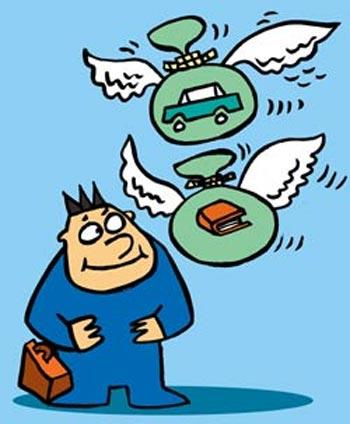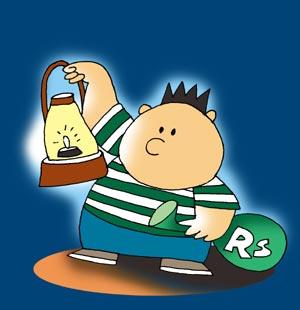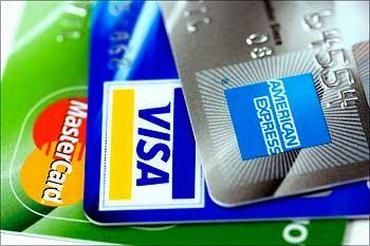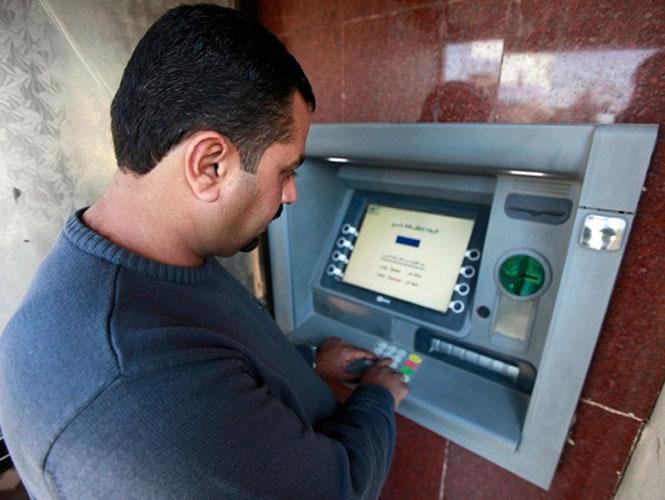Photographs: Uttam Ghosh/Rediff.com Rajiv Raj
Here's what you must know to derive maximum benefit from them
Debit cards and credit cards have changed the way we spend and live. One tends to use these cards interchangeably but they are quite distinct in their function as well as consequences.
Hence, it makes sense to understand which card should be flashed in a situation and which should stay in the wallet.
Ami Shah, 23 and working for a call centre got a debit card from the bank where she holds her savings account. A couple of months later, the bank gave her an "exclusive offer" of a credit card which Ami was happy to take.
After all, it was good to show off a bit with the cards when you are out with friends. When asked if she uses her credit card or debit card, Ami was confused... "what difference does it make? They look the same, they are used in the same manner and serve the same function," she said.
Right? Wrong!
Debit cards and credit cards are often used interchangeably. Most people will whip out the first card that slides out of the wallet without stopping to think if it is a debit card or credit card.
While credit cards and debit cards look similar, they are quite different in the way they work.
Please click NEXT to continue reading
The author is a credit expert with 10 years of experience in personal finance and consumer banking industry and another 7 years in credit bureau sector. Rajiv was instrumental in setting up India's first credit bureau, Credit Information Bureau (India) Limited (CIBIL). He has also worked with Citibank, Canara Bank, HDFC Bank, IDBI Bank and Experian in various capacities.
How to use your credit and debit card smartly
Photographs: Uttam Ghosh/Rediff.com
How do they work?
A credit card is essentially a loan offered by the bank to you for a free credit period usually around 40 days.
The money available for spending is limited to the unused portion of the credit limit offered to you.
A debit card, on the other hand, is a channel to access you own money in your savings account with the bank; the money available to you is limited by your bank balance.
A credit card statement or bill will arrive at your doorstep at the end of the billing cycle and you need to pay the amount fully or a hefty interest rate is charged on the outstanding amount as well as all spending from then on.
The debit card spending is deducted from your bank account and reduces your balance to that extent.
So, when should you use your credit card or debit card?
Please click NEXT to continue reading
How to use your credit and debit card smartly
Photographs: Rediff Archives
Use a credit card if:
- You want to make online purchases. It is convenient and safer. With a credit card, the limit to which it can be misused is the credit limit available so preferably use a credit card with a lower limit for your online purchases
- If you are disciplined and will repay the full amount when the bill arrives
- You wish to pay back using the EMIs for purchases offered on bigger transactions
- You spend regularly at a retail outlet and will benefit from their co-branded credit card. Co-branded cards often have special offers and also higher rewards points
- If you are trying to build up your CIBIL credit score. A credit card helps to show a history of borrowing and repayments which is essential to improve your CIBIL credit score
Please click NEXT to continue reading
How to use your credit and debit card smartly
Photographs: Mohammed Ameen/Reuters
Use your debit card if:
- You wish to withdraw cash. You will be using your own money without any interest charges. Whereas with a credit card you will be racking up heavy interest charges
- When you are trying to keep your spending in check. A debit card will limit your spending as it is backed with your bank balance
- If you are trying to reduce your credit card debt, it is best to strictly use cash or your debit card
- For any regular everyday expenses






Comment
article